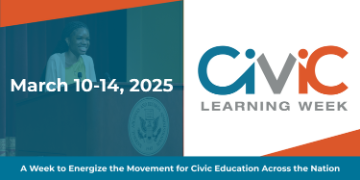Sam Liccardo, member of the San Jose City Council, talks with Judy Nadler, senior fellow in government ethics at the Markkula Center of Applied Ethics. Liccardo focuses on the ethical challenges for government officials who must make decisions about what programs to trim or cut during difficult economic times
When members of the Ethics Center's Public Sector Roundtable met this summer, most had recently completed the tough process of budgeting in a time of fiscal crisis. The group includes mayors, councilmembers, city managers, and other public officials.
To frame the group's discussion about the values represented by various budgetary approaches, Sam Liccardo, councilmember from the city of San Jose, Calif., posed three questions:
- 1. What is the influence of relationships on budget decision making?
- 2. What are the implications of the numerical formula we rely on, whether across the board or targeted cuts?
- 3. Are we meeting the burden of truth telling in our communities on the issue of generational equity?
While people like to believe that budgeting is a totally rational process, Liccardo argued that it is highly influenced by relationships. First of all, budget deliberations usually focus on a small group of decisions, leaving "99 percent" of the numbers just as councils receive them from their budget director or city manager. Because most councilmembers respect or trust their staffs, they usually defer to their recommendations. Liccardo asked whether councils abdicate their responsibilities when they accept so much of the budget as it comes from the staff.
He also listed a host of others who influence the budget including non-profit and for-profit businesses, media, neighborhood and community leaders, and campaign donors. "Who's left out?" he asked. "It tends to be people with fewer resources and less of a voice. How does that affect our decision making? How explicitly do we address their needs?
Liccardo asked the group to also consider the impact of negative relationships on their decision making. "Are we deciding no because of who's on the other side?" In general, Liccardo concluded that the budget process was inevitably tainted by relationships and that the key for city councils was to surface those and address them with transparency.
Addressing his second question, Liccardo noted that in tight times, many cities make across the board cuts except for public safety. That, too, may be an abdication, he suggested, if councilmembers push a "share the pain" approach when what is warranted are the more difficult decisions of assessing the claims of one constituency or program over another. Finally, Liccardo expressed concern about the lack of truth telling about budgets. Because budgets are such complex documents, the average citizen may not understand the decisions being made. That, said Liccardo, gives elected officials "opportunities for disingenuousness," for obscuring the true implications of decisions.
"It's great to say we want to spend more money on this, but who will lose their job when we have to cut elsewhere?" he asked. He also urged officials to take on the "waste, fraud, and abuse myth," which lets citizens believe that they can have every service they want if only some mythic fat is cut from spending.
Liccardo lamented the fact that real truth telling has not come from politicans. Issues of generational equity—asking the next generation to pay for the decisions of the present—have been raised not by elected officials but by academics and even Wall Street. "We have an ethical obligation to raise the level of political discussion about budgets."
Miriam Schulman is the communications director of the Markkula Center for Applied Ethics.
August 2011



